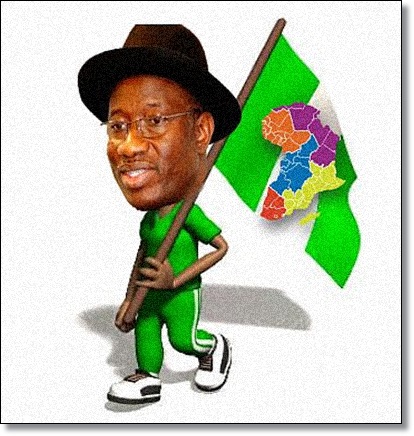Nigeria Can Make Africa Proud

 |
Nigeria’s GDP has nearly tripled since 2000. Nigeria is not only the world's eighth-largest exporter of oil, but has also become a player in agriculture, telecommunications and banking. Nigeria has just been recognized as the Africa’s biggest economy.
Nigeria is also a major actor in international relations. Not only does it host the regional inter-governmental body, ECOWAS, but it is also a major troop-contributor to United Nations peacekeeping and Nigeria currently sits at the Security Council.
But now Nigeria faces three critical tests to its future progress and prosperity. First, the barbaric insurgency of Boko Haram must be ended. There seems to be no limit to what that group is ready to do to instil fear and intimidate a whole population. They cannot succeed. We must protect our traditions of tolerance, reconciliation and pluralism. The second great challenge is the forthcoming elections.
Elections have become flashpoints in many countries around the world, leading ordinary people to sometimes doubt the value of democracy itself. That is why I created the Global Commission on Elections, Democracy and Security with other leaders and world experts. With other world leaders, the group focused on elections with integrity as the key foundation of democratic legitimacy.
“Elections without integrity” are elections that do not allow citizens a credible, safe and fair means of choosing their leaders and the policies they pursue through a peaceful institutional mechanism.
The Global Commission identified 5 challenges to elections with integrity
• Weak rule of law and weak protection of voters’ rights
• Inadequate electoral management bodies, either because they are insufficiently resourced, incompetent or not independent enough to enjoy public confidence
• Denial of future political opportunity to those who lose, leading to a win-at-all cost mind-set
• Barriers to universal and equal political participation
• Uncontrolled, undisclosed, and opaque political financing
These challenges are evident in many countries. Even countries with long established democracies are vulnerable. Elections without integrity not only rob the people of their rights. They also deny the winners legitimacy, and make governance much more difficult.
Nigeria has come a long way since 1999, but important challenges remain. Let me raise five points with you in particular. First, I want to stress that the elections are not the sole responsibility of INEC. Of course, INEC has the key technical role to play, and has certain difficulties to overcome, notably in logistics and public communications. But the political parties, their candidates and their supporters all share responsibility for free, fair and peaceful elections.I also want to stress the responsibility of the voters themselves.Many Nigerians I have met complain about their leaders, but I have heard that less than half of the eligible population actually votes. You cannot abstain and then complain.
Second, let’s talk about to how to fix Nigeria’s problems. I encourage all concerned, both the politicians and the public, to avoid inflammatory language and instead to pay attention to the crucial issues, like poverty reduction, inclusive development, justice, security, and so on. You must, in particular, resist efforts to use regional, tribal and religious differences to gain political mileage.
Third and most importantly, I hope that candidates and their supporters will not to resort to violence if they do not win. As Kenya’s politicians discovered, violence quickly gets out of hand. The election-related violence in Kenya put the country back several years and hurt everybody. Politics should be about serving the higher interests of the country and not self-serving. As the late President Kennedy once said, “…ask not what your country can do for you. Ask what you can do for your country.”
Fourth, the 2015 elections are an opportunity to confirm Nigeria’s progress in the eyes of the world, but most importantly, in the eyes of its own people. Nigeria has a young population. Thanks to the internet, television and social media, they are connected to the world, and they compare their situation to that of other young people in Europe, the Americas, Asia and indeed other parts of Africa. Their expectations and their demands are much greater than previous generations. As a country with a majority of young people, their concerns should be at the centre of government policies and programmes. Let us focus on the next generation and not only the next election.
Finally, there can be no lasting peace without justice: Legal justice, but also political and economic justice. That will be the task in the coming years.
With the fall in the price of oil, making Nigeria attractive to investors, both local and international, becomes even more important. Political stability will be a premium. Chaotic elections would send a very bad signal at this crucial juncture.
The stakes are high, but I know that Nigeria can rise to the challenge because we all know that Nigeria is full of bright, entrepreneurial and resilient people. The world is watching. Nigeria’s success in the forthcoming election will be Africa’s success. Nigeria has the future of the continent in its hands. Make Africa proud, as I know you can!
By H.E. Kofi Annan
Former UN Secretary General prior to inter-party agreement on nonviolence in Nigeria.
